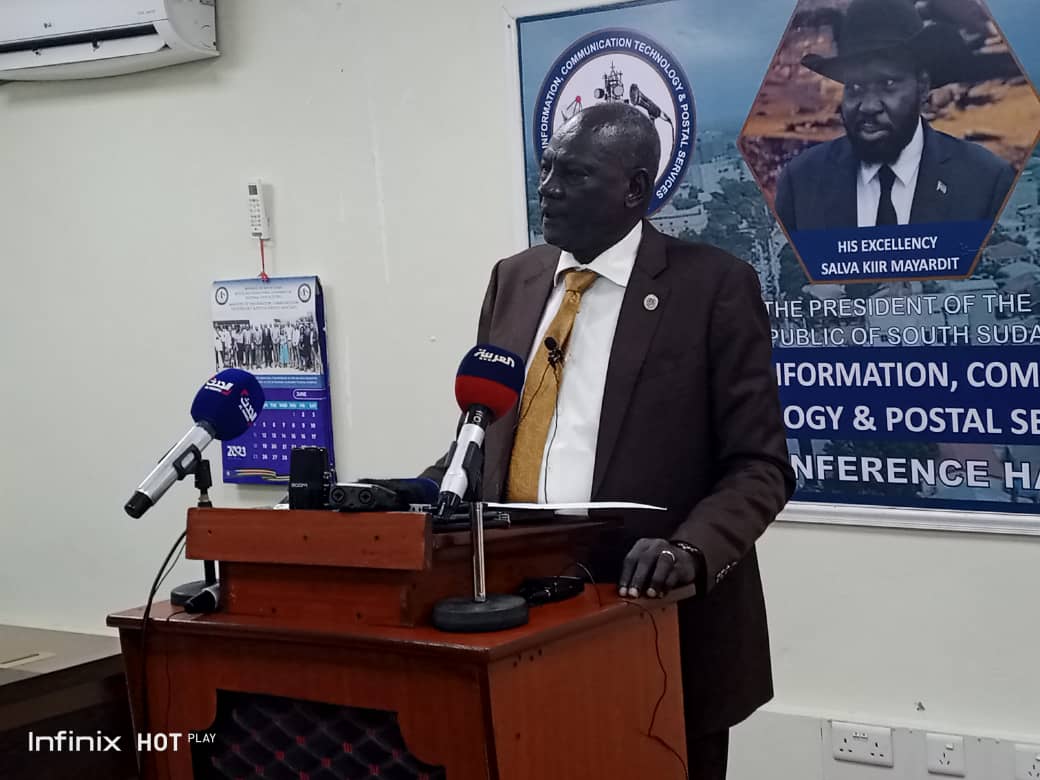
South Sudan elections to go ahead despite slow progress on peace mechanisms

The government reassured on Tuesday that it will meet the December 2024 elections timeline, despite slow progress on implementation of key peace mechanisms required to necessitate free, fair and credible polls.
Michael Makuei Lueth, the minister of information, communication, technology and postal services, said they will go ahead with the elections timeline even if they don’t implement on time key provisions within the 2018 revitalized peace agreement.
“For us we say, we are ready for elections, there are those who believe that we are not going for elections unless all the provisions of the (peace) agreement are implemented, that is rubbish,” Makuei told journalists during press conference in Juba
“We will continue with the implementation of the agreement, there are some provisions that are usually not necessary and they cannot be a condition for doing anything, it is the people of South Sudan that will decide,” he added.
Makuei’s remarks came in the aftermath of Guang Cong, the deputy special representative of the Secretary-General (Political) for South Sudan, saying that constant delays in the implementation of key electoral and constitutional benchmarks by parties to the 2018 revitalized peace agreement cast doubts on the possibility of holding elections in 2024.
Guang said there is an urgent need for the adoption of the national elections act by the revitalized transitional national legislative assembly, the reconstitution of the National Constitutional Review Commission, the National Elections Commission, and the Political Parties Council.
“Despite the growing calls for elections in the public domain, we are concerned about the lack of progress in key electoral and constitutional benchmarks. As it stands, the conditions for South Sudan to hold elections are not in place yet,” Guang said last week during the plenary meeting of members of the Revitalized Joint Monitoring and Evaluation Commission (RJMEC) in Juba.
In addition, Guang disclosed that the transitional security arrangements are behind schedule, as the first phase of the unified forces that graduated in August last year is yet to be redeployed.
The second batch of unified forces is waiting to enter the training centers upon redeployment of the estimated 53,000 strong first batch.
In total, the parties to the peace agreement are supposed to graduate 83,000 unified forces made up of police, army, intelligence, wildlife, and prisons.




































